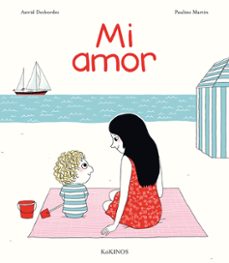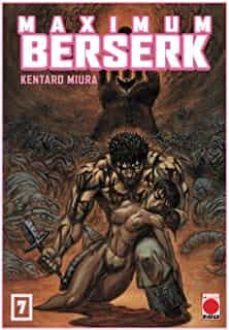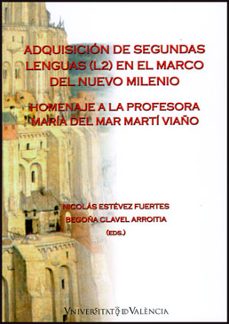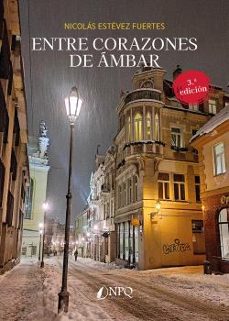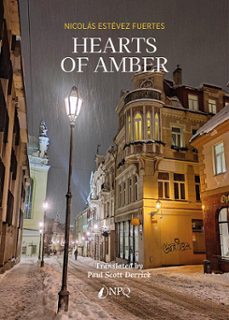Imprescindibles
Ficción
No Ficción
Ciencias y tecnología Biología Ciencias Ciencias naturales Divulgación científica Informática Ingeniería Matemáticas Medicina Salud y dietas Filología Biblioteconomía Estudios filológicos Estudios lingüísticos Estudios literarios Historia y crítica de la Literatura
Humanidades Autoayuda y espiritualidad Ciencias humanas Derecho Economía y Empresa Psicología y Pedagogía Filosofía Sociología Historia Arqueología Biografías Historia de España Historia Universal Historia por países
Infantil
Juvenil
#Jóvenes lectores Narrativa juvenil Clásicos adaptados Libros Wattpad Libros Booktok Libros de influencers Libros de Youtubers Libros Spicy Juveniles Libros LGTBIQ+ Temas sociales Libros ciencia ficción Libros de acción y aventura Cómic y manga juvenil Cómic juvenil Manga Shonen Manga Shojo Autores destacados Jennifer L. Armentrout Eloy Moreno Nerea Llanes Hannah Nicole Maehrer
Libros de fantasía Cozy Fantasy Dark academia Hadas y Fae Romantasy Royal Fantasy Urban Fantasy Vampiros y hombres lobo Otros Misterio y terror Cozy mistery Policiaca Spooky Terror Thriller y suspense Otros
Libros románticos y de amor Dark Romance Clean Romance Cowboy Romance Mafia y amor Romance dramatico Romcom libros Sport Romance Otros Clichés Enemies to Lovers Friends to Lovers Hermanastros Slow Burn Fake Dating Triángulo amoroso
Cómic y manga
Novela gráfica Novela gráfica americana Novela gráfica europea Novela gráfica de otros países Personajes, series y sagas Series y sagas Star Wars Superhéroes Cómics DC Cómics Marvel Cómics otros superhéroes Cómics Valiant
eBooks
Literatura Contemporánea Narrativa fantástica Novela de ciencia ficción Novela de terror Novela histórica Novela negra Novela romántica y erótica Juvenil Más de 13 años Más de 15 años Infantil eBooks infantiles
Humanidades Autoayuda y espiritualidad Ciencias humanas Economía y Empresa Psicología y Pedagogía Filosofía Historia Historia de España Historia Universal Arte Cine Música Historia del arte
Ciencia y tecnología Ciencias naturales Divulgación científica Medicina Salud y dietas Filología Estudios lingüísticos Estudios literarios Historia y crítica de la Literatura Estilo de vida Cocina Guías de viaje Ocio y deportes
Nicolás Estévez Fuertes
Recibe novedades de NICOLAS ESTEVEZ FUERTES directamente en tu email
Filtros
Del 1 al 3 de 3
Publicacions de la Universitat de València 9788437090832
Este homenaje a la profesora María del Mar Viaño, constituye una recopilación de estudios e investigaciones que son muestras de reconocimiento de sus compañeros y antiguos alumnos. El volumen ofrece diversos articulos e investigaciones que estudian y analizan las necesidades e intereses metodologicos de la adquisicion de segundas lenguas (L2) en el marco del nuevo milenio.Aquest homenatge a la professora Maria del Mar Viaño, constitueix una recopilacio d'estudis i recerques com a mostres de reconeixement per part dels seus companys i antics alumnes. El volum ofereix diversos articles i investigacions que estudien i analitzen les necessitats i interessos metodologics de l'adquisicio de segones llengues (L2) en el marc del nou mil·lenni.Este homenaje a la profesora Maria del Mar Viaño, constituye una recopilacion de estudios e investigaciones que son muestras de reconocimiento de sus compañeros y antiguos alumnos del departamento de Filologia Inglesa y Alemana de la Universitat de Valencia. Del mismo modo, incluye tambien un numero considerable de colaboraciones de profesores e investigadores de otras universidades. Desde el punto de vista academico e investigador, la Dra. Marti Viaño se distinguio principalmente por sus estudios de metodologia e investigacion en la enseñanza/aprendizaje de la adquisic...
Ver más
Tapa blanda
Npq Editores 9788419440723
Entre corazones de ámbar es la crónica de una de las revoluciones más insólitas dentro del orden geopolítico mundial establecido después de la Segunda Guerra Mundial: la invasión soviética de Lituania en 1991. Dos jovenes periodistas españoles, Marcos y A
Ver más
Tapa blanda
Npq Editores 9788419924421
Hearts of Amber chronicles one of the most extraordinary revolutions within the geopolitical order established after the Second World War? the Soviet invasion of Lithuania in 1991. Marcos and Alberto, two young Spanish journalists, accept the challenge to go there and report on these historic events. The story of these young journalists allows us to witness through historical flashbacks the horrors of the deportations to the Siberian Gulags, the genocide and the harsh conditions experienced in the prisons of the KGB, the struggle of the partisans during the Soviet invasions of 1940 and 1944, and the brief bloody Nazi intervention in 1941. Yet, despite it all, the desires for freedom that lie beneath the consciousness and within the genes of the sovereign people persist against the threat of a new invasion and the long shadow of latent resentment against the Soviet narrative. These desires are like oil oating in a glass of water and a powerful force that prevents the Lithuanian people from losing their ability to hope. The dream of freedom, like amber, has fossilized over the course of many years in the hearts of the Lithuanians and can never be diminished. In effect the novel is a celebration of the right to life, to love and the yearning for freedom that emerge from its pages like a balm in the face of the chilling memories of the adversities and experiences of the past and the fear of yet another invasion.
Ver más
Tapa blanda
Del 1 al 3 de 3








